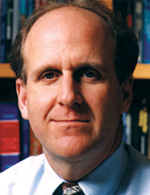 Daniel Schacter, PhD, Harvard Professor of Psychology and CLBB faculty member, has been elected to the National Academy of Sciences.
Daniel Schacter, PhD, Harvard Professor of Psychology and CLBB faculty member, has been elected to the National Academy of Sciences.
Members are elected to the Academy each year “in recognition of their distinguished and continuing achievements in original research.” A widely accepted mark of excellence in science, membership is considered one of the highest honors a scientist can receive.
Dr. Schacter is the William R. Kenan, Jr. Professor of Psychology at Harvard; Director of Harvard’s Schacter Memory Lab; and an award-winning author whose books include The Seven Sins of Memory and Searching for Memory: The Brain, The Mind, The Past. He is also an active member of the Center for Law, Brain and Behavior faculty. In January he appeared on a panel organized by CLBB, “Memory in the Courtroom: Fixed, Fallible or Fleeting?” to discuss distortion of memory, how the courts are beginning to take into account decades of psychological research, and how neuroscience may play a role in the future.



